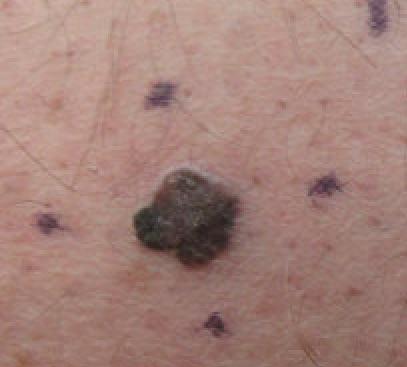Spectrum of Skin Cancer Risk Characterized for Solid Organ Transplant Recipients
, by Maura Kate Costello, M.A.
In the largest cohort study to date of solid organ transplant recipients (SOTRs), investigators characterized the spectrum of risk for common and rare non-keratinocyte skin cancers, including melanoma, Merkel cell carcinoma, adnexal cancers, sarcomas, and cutaneous lymphomas. Key risk factors that may contribute to elevated risk are viruses, UV radiation exposure, and immunosuppression. Findings from this study were published in Spring 2022 in the journal, JAMA Dermatology.
SOTRs must undergo immunosuppression therapy to prevent rejection of their transplanted organ. However, long-term immunosuppression can increase risk of non-keratinocyte skin cancers. In this study, there were 2,380 non-keratinocyte skin cancers in the cohort of 444,497 individuals who underwent solid organ transplantation between 1987 and 2017. Michael Sargen, M.D., and colleagues found that melanoma was the most common skin cancer at 61.8 percent, followed by Merkel cell carcinoma (14 percent) and Kaposi sarcoma (7.8 percent), notably both associated with viruses. Investigators also observed increased risk of sebaceous carcinoma, anaplastic large cell lymphoma and diffuse large B-cell lymphoma. Important factors associated with elevated skin cancer risk in addition to viruses include UV radiation exposure, male sex, older age at transplant, and increasing time since transplant.
These findings support the current practice of intensive skin surveillance for SOTRs. In addition, the investigators found that treatment with a class of medication called mammalian target of rapamycin inhibitors was associated with reduced risk of melanoma, suggesting that this medication class may be effective for melanoma chemoprevention in the transplant population.
Reference:
Sargen, M. et al. Spectrum of Nonkeratinocyte Skin Cancer Risk Among Solid Organ Transplant Recipients in the US. JAMA Dermatol. 2022 Apr 1. DOI: 10.1001/jamadermatol.2022.0036.
